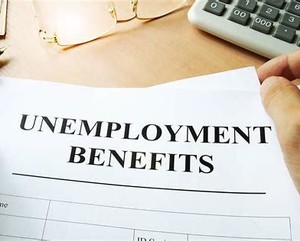Posted on Jun 17, 2020
A provision in the CARES Act provides unemployed workers with a $600 weekly federal unemployment benefit on top of state unemployment benefits. In some cases, the additional $600 per week is worth two to three times as much as the weekly benefit offered by states. The CARES Act also expands unemployment benefits for workers who are normally ineligible for unemployment benefits, including part-time, seasonal, self-employed, and contract workers. Furloughed employees are also eligible to claim unemployment benefits, even if they are receiving company benefits such as healthcare.
One of the major unintended consequence of the $600 weekly federal unemployment payment is that some workers are making more money on unemployment than working and employers are getting a lot of push back. Many employees are asking to be furloughed or to extend their return to work date. Many of those workers will soon have to choose to remain on unemployment benefits or to go back to work. And the decision is not as clear cut as you might imagine.
Why should employees return to work?
- Employees who refuse return-to-work offers may disqualify themselves for unemployment benefits, including the $600 federal payment. State unemployment requires an employee to continue looking for a job and requires that employees accept suitable employment when it is offered. Failure to do so may makes an employee ineligible for unemployment benefits.
- The CARES Act also provides a clause that allows workers to turn down a job offer for a coronavirus-related reason, such as being ill or caring for an ill family member but it doesn’t allow people to turn down a job offer because they are concerned about going back to work.
- The expanded federal unemployment benefits will eventually run out and unemployed workers will be left with only their state unemployment benefits. While this is still helpful, it may not be enough to live on, which will increase the urgency to get back to work.
- Turning down a recall to work may leave employees unemployed for a very long time. Unfortunately, many experts predict the labor market to be very tight through at least the end of the summer and potentially well into the fall and winter. And in certain industries even longer.
- Furloughed employees usually still have access to their healthcare benefits and certain other company perks. However, those benefits will end if employees choose not to return. COBRA benefits are very expensive which likely will eat up a large part, if not all of the “extra” money an employee is receiving while on unemployment.
What should employers do?
- All recommended coronavirus related safety measures should be in place before calling people back to work so that employees are safe.
- Employers should provide a written recall notice notifying each employee of the return date.
- If the employee refuses the offer, the employer should get the decline of job recall in writing along with the employee’s reason.
- Many state unemployment divisions will request a copy of refusal to return to work documentation for their records.
- Make sure the employee fully understands that both the current federal unemployment payment along with state unemployment benefits are not indefinite and are only provided for so many weeks.
- Finally, make sure that the employee fully understands that there is no expectation of future employment with the company if they decline to return to work when recalled.

